Mastering Internet Privacy Policies: Best Practices Every Website Needs

Do you want to know best practices for internet privacy policy?
The importance of online security has grown with increasing concerns over data privacy and security.
An internet privacy policy explains how organizations collect, use, and protect user information.
This policy helps build trust between companies and their customers, and it ensures that businesses follow legal rules about data protection.
As cyber threats become more sophisticated, a good privacy policy can help protect against data breaches and misuse of personal information.
In this guide, we will explore the essential elements of an internet privacy policy and provide best practices to make it clear and user-friendly
We will also provide a step-by-step guide to help you create an effective policy that meets your organization’s needs.
What is an Internet Privacy Policy
An Internet Privacy Policy is a legal document that explains how a website or app collects, uses, and manages personal information from its users.
This policy helps users understand their rights regarding their data and how it is handled.
It usually includes details about the types of data collected, the reasons for using the data, and whether the data will be shared with third parties.
Users expect organizations to be clear about their data practices, especially with laws like the GDPR in Europe and CCPA in California.
A good privacy policy builds trust with users and ensures that legal requirements are met.
Overview of Global Privacy Regulations
Privacy Management plays a major role for websites to comply with global regulations. As concerns about privacy policies and data security persist as threats, several global privacy regulations have been enacted to protect individuals’ rights to privacy and data processing.
These laws impose requirements on companies based on size, type of data collected, and location. A number of international privacy laws also apply to websites. Laws such as :
- General Data Protection Regulation: The GDPR was adopted by the European Union (EU) in 2018. It relates to the processing of personal data regarding individuals located in the EU and applies to any website, regardless of location, that collects data from EU citizens.
- California Consumer Privacy Act: The CCPA was enacted in 2018 and grants rights to individuals living in California regarding the personal data they provide to businesses. It also creates an obligation for businesses that collect personal data about individuals in California, including many websites.
- Personal Information Protection and Electronic Documents Act: PIPEDA is a Canadian law that governs how private-sector businesses collect, use, and disclose personal information. Websites directed toward Canadian users must comply with PIPEDA.
- General Data Protection Law (LGPD) of Brazil: The LGPD law seeks to protect the right to privacy of Brazilian residents. Websites that direct their activities to users in Brazil must comply with this law.
- Personal Data Protection Act (PDPA): The PDPA in Singapore outlines rules about how organizations collect, use, and disclose personal data. Websites targeting users in Singapore will need to comply with the PDPA.
These laws impact websites in obtaining consent to collect data, taking steps to protect the user’s data by being transparent about their practices, and providing rights for the data subjects.
Best Practices for Crafting an Internet Privacy Policy
Here are simple privacy policy best practices to follow which will guide you in creating a proper privacy policy for your website.
| Good Privacy Policy Practices | Bad Privacy Policy Practices |
| The language should be clear and transparent | No use of heavy technical or Legal jargon |
| Specific Data Collection Information | Vague or Broad Data Collection Statements |
| Obtains clear user consent | Obtain clear user consent |
| Clear Opt-Out Options | No Opt-Out Option |
| Provides regular updates | Outdated Policies |
| mentioning third-party disclosures | Hidden third-party sharing |
| Data Security Measures | No Mention of Security |
| User Rights and Access | No User Rights Information |
1. Write the policies in simple language.
You must create an internet privacy policy that your visitors will be able to understand easily. Whosoever is drafting the policy, you or your lawyer, remember to write it simply.
2. Keep your privacy policy unique.
A very significant privacy policy best practice is to keep it unique. Your privacy policy should talk about your company, how it gathers visitors’ information, and what it does with it. Every company has its methods and processes.
It would be a great mistake to simply copy and paste something you find for free without even reading it correctly. It increases the chance of your company facing penalties as well.
One of the Real World Examples is :
Among the few real-life instances of companies facing legal troubles due to copying privacy policies, one case is Vizio, a manufacturer of smart TVs. In 2017, the New Jersey Division of Consumer Affairs and the Federal Trade Commission jointly fined Vizio $2.2 million for violating consumer privacy rights.
Vizio tracked users’ viewing patterns and sold this data to third parties without consent. Although the company had crafted a privacy policy that gave users the proper disclosures, it did not correspond to its practice regarding user data collection.
The lawsuit was based on a lack of proper transparency regarding disclosures on data-sharing practices. This case underlines how the use of replicated or generic privacy policies that do not correspond to how a particular entity protects user information can result in monetary charges against the offending entity and reputational harm.
3. Keep your policy updated
Internet is a dynamic environment and keeps on changing now and then. Make sure to reflect any changes by updating your policy regularly and communicate the update to your customers as soon as possible.
4. Follow the policy
Do not, ever fall prey to deceptive practices. Follow your policy as drafted by it and do not engage in anything that will be contrary to your policies.
5. The policy page should be easily accessible
There are numerous circumstances where visitors find it extremely difficult to access the privacy policy page of a website. Make sure your company privacy policy page easily accessible to your visitors. The best way to ensure that is to place a visible link of your privacy policy page on your homepage itself.
6. Keep the information you gather secure
Your visitors give access to their information only if you assure them about the security of the information. Once assured, you should keep your promise and never disclose or sale private information shared by the visitors.
7. Do not ask for sensitive information
It would be nice if you refrain from asking your visitors extremely personal or sensitive information. People are becoming more skeptical about parting in excessive private information. If you really need that information, establish your credibility while asking by stating why you need the information and how you are going to protect that bit of sensitive information.
8. Do not ignore the FTC or state laws
Though there are no clearly stated federal or state laws related to privacy policies, yet you should follow the minimum standards like unfair and deceptive trade practices acts provided by them.
These are the most important privacy policy best practices that you should adhere to while drafting your company’s policies. A relationship of mutual trust is required to make your business successful and with a properly written privacy policy it becomes easier for you to create an environment of trust.
How to make an Internet Privacy Policy for Your Website
Creating a privacy policy is important for website that collect and handle user data.
A clear and well-written privacy policy helps you follow the law, builds trust with your users, and explains how you manage their data.
Here is a simple step-by-step guide to help you write a detailed and compliant privacy policy.
You can use a plugin to create a privacy statement for your website easily.
We recommend the WP Legal Pages plugin a privacy policy generator that creates legal polices for your website in no time.
WP Legal Pages – A Free Privacy Policy Generator Plugin
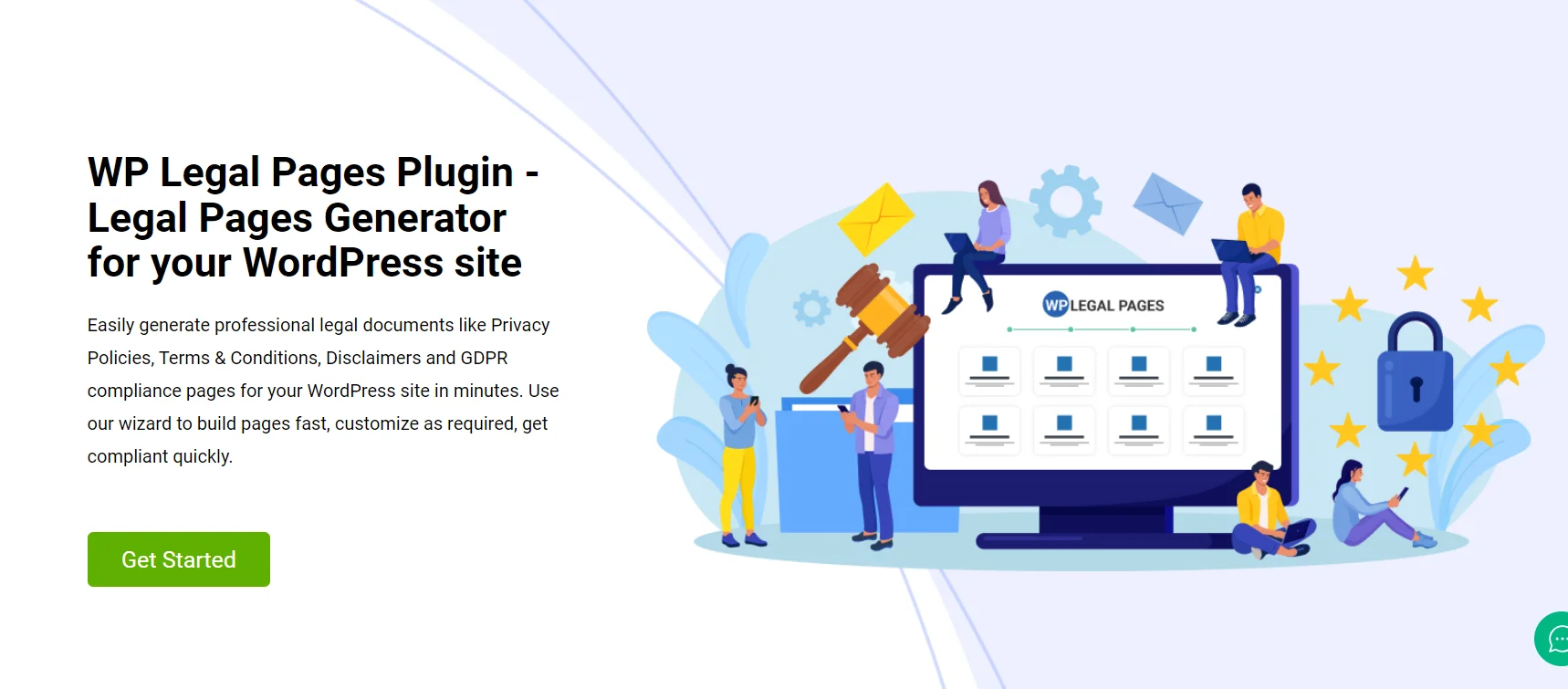
WP Legal Pages is a flattering plugin that enables you to create and modify your site’s privacy policy pages swiftly.
With its pre-built template, you can easily generate a privacy policy that aligns with your business requirements.
WP Legal Pages also offers access to over thirty-five ready-made templates, helping you create various legal pages for your website.
The plugin features templates for refund policies, terms and conditions, privacy policies, and disclaimers.
As we aim to concentrate on crafting a privacy policy, let’s explore how to create one for your website.
Step 1: Installing WP Legal Pages Plugin
Go to your WordPress dashboard and click on Plugin > Add New Plugin.
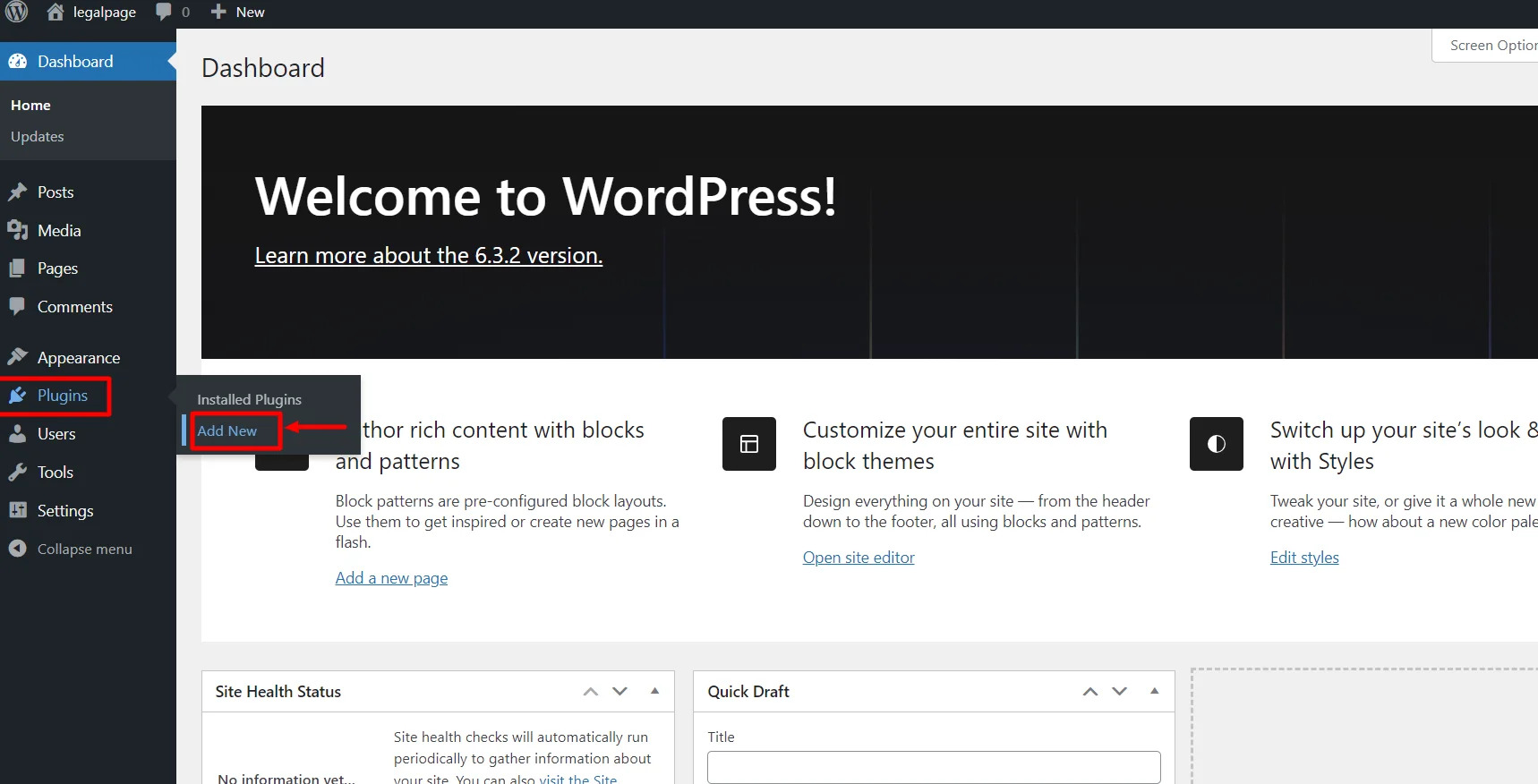
In the search bar search for WP Legal Pages.
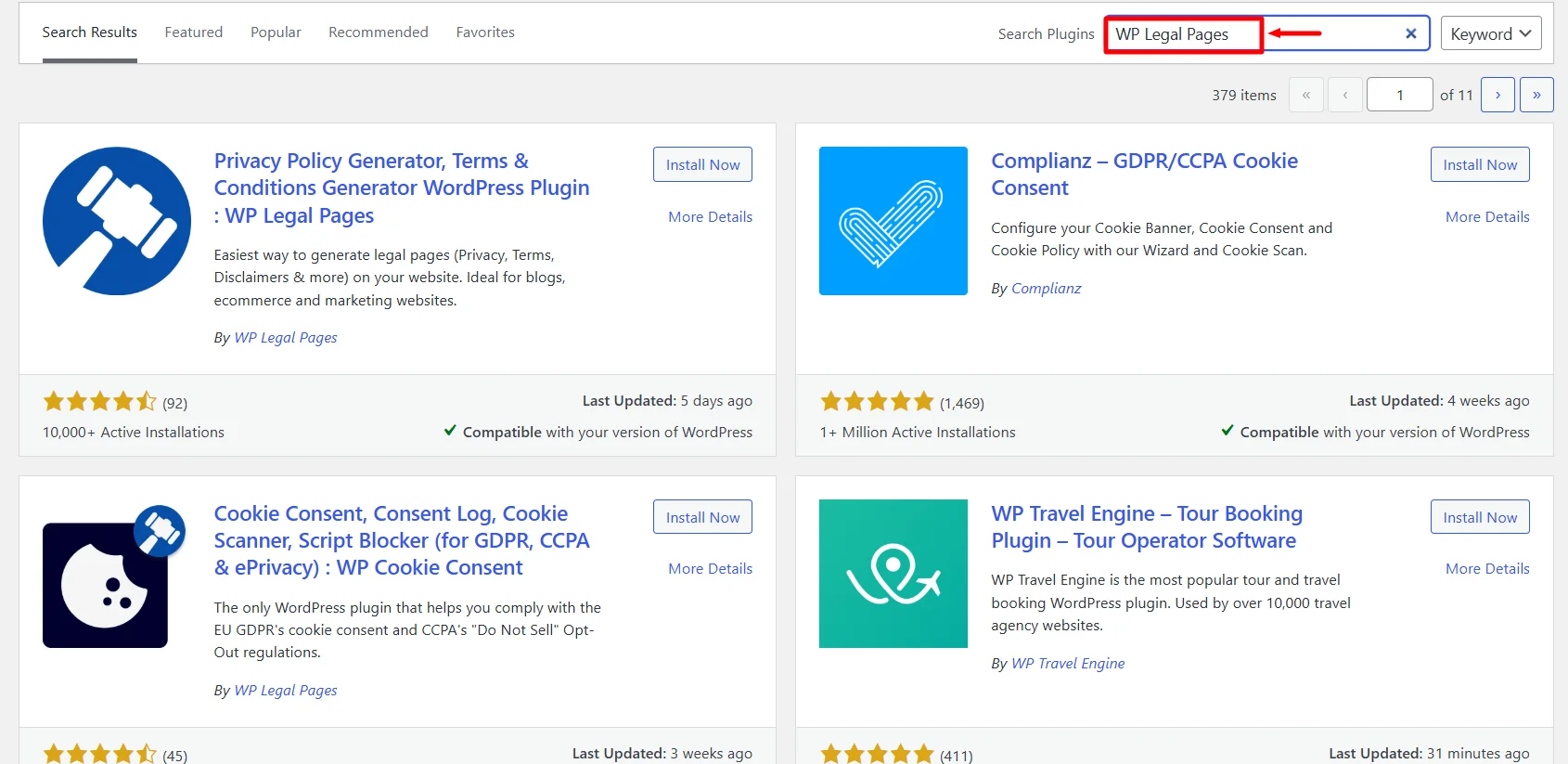
Click on the Install Now button.
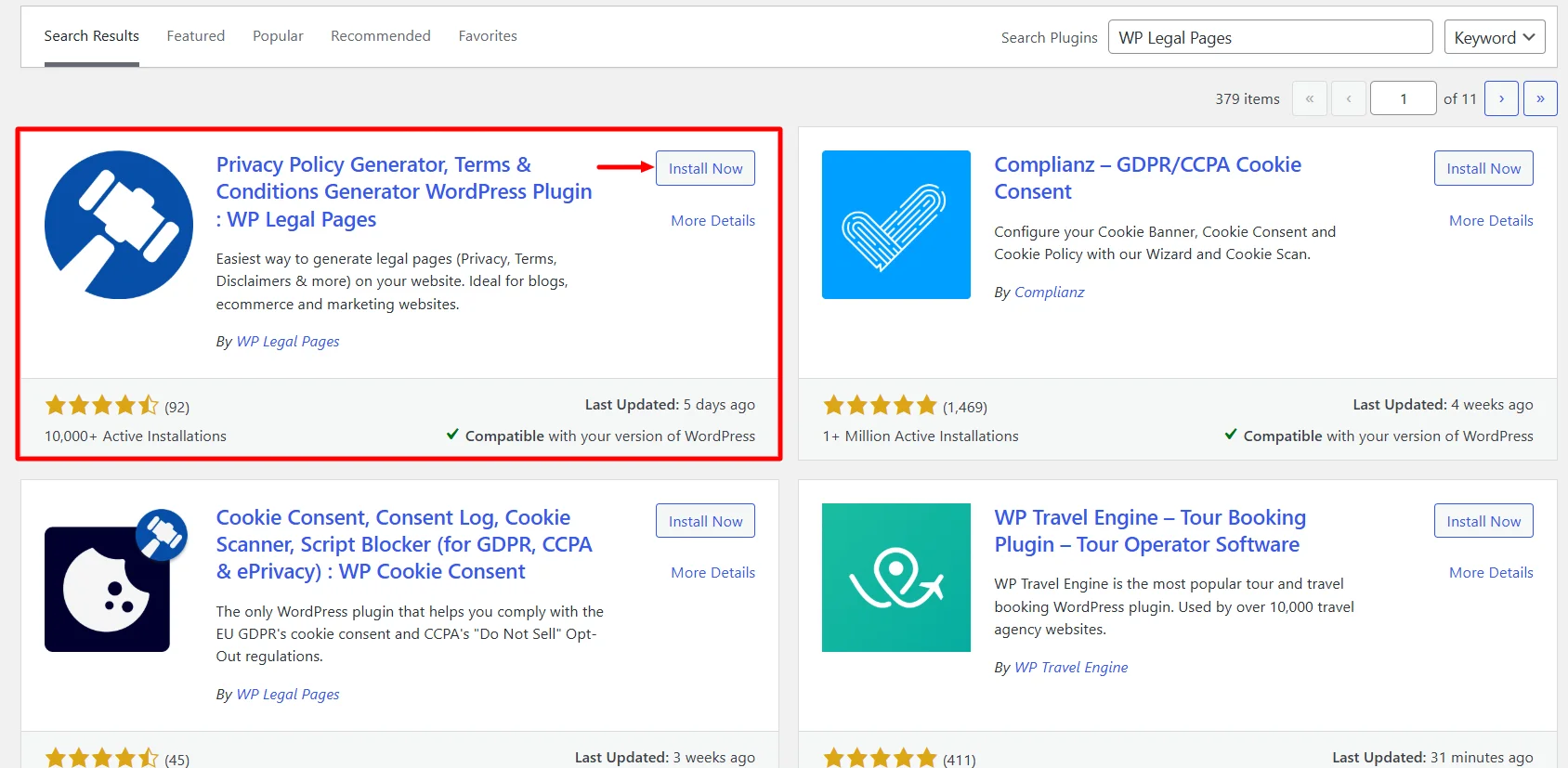
To activate the plugin, click on the Activate button.
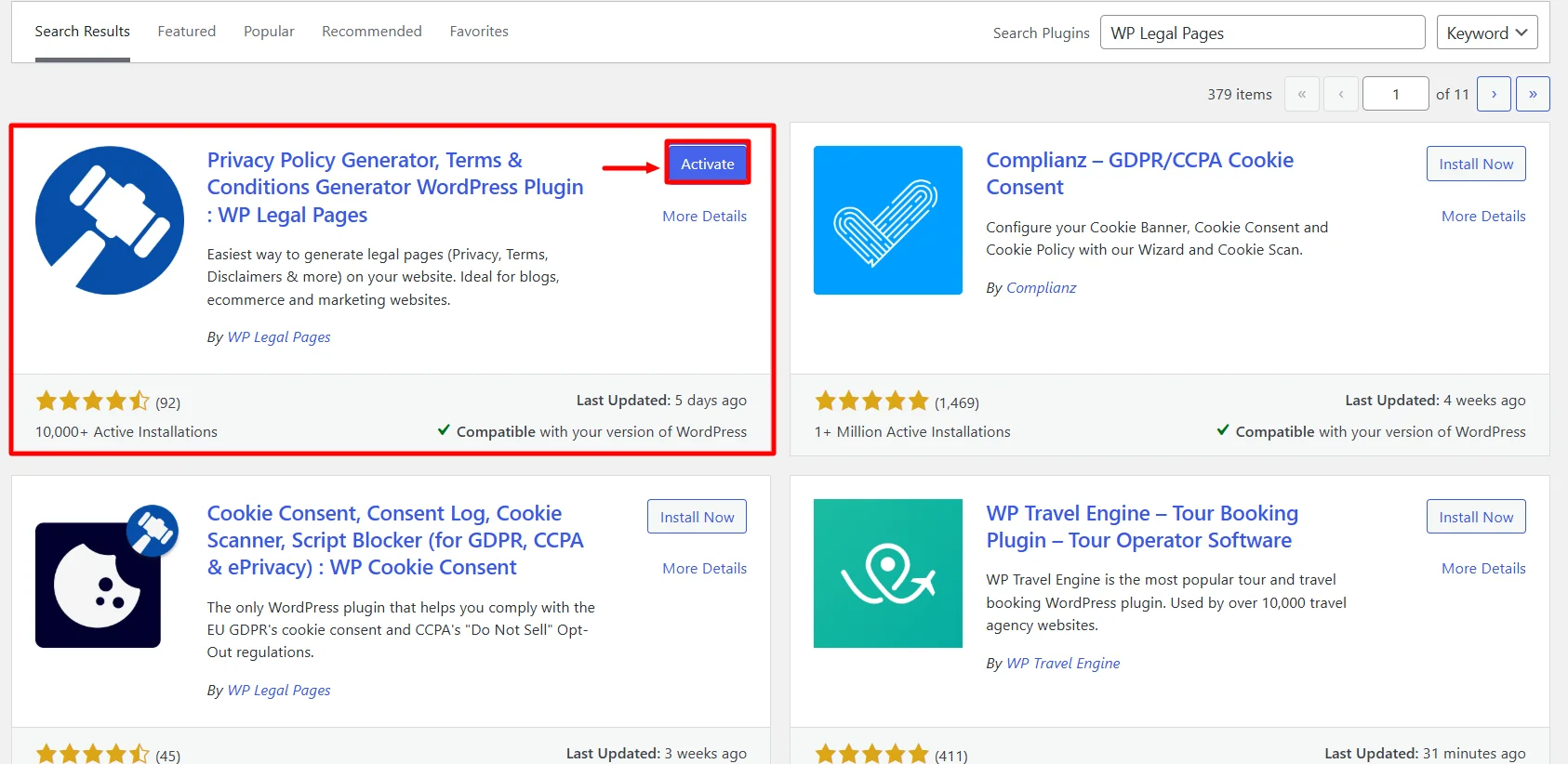
Step 2: Configuring WP Legal Pages Plugin
Once you have activated the plugin, you can access it directly from the Dashboard.
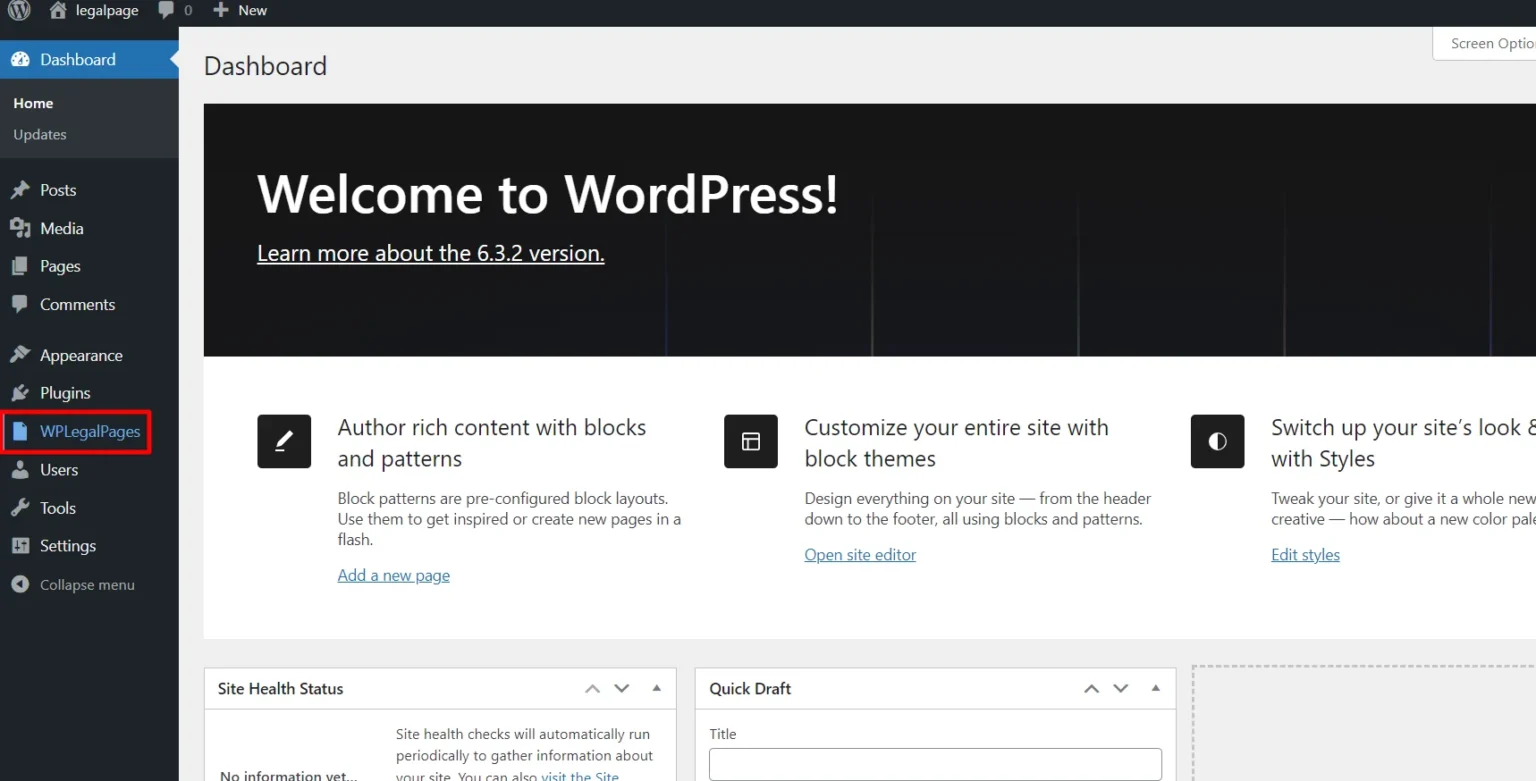
Next, Accept the terms of use of the WPLegalPages plugin.
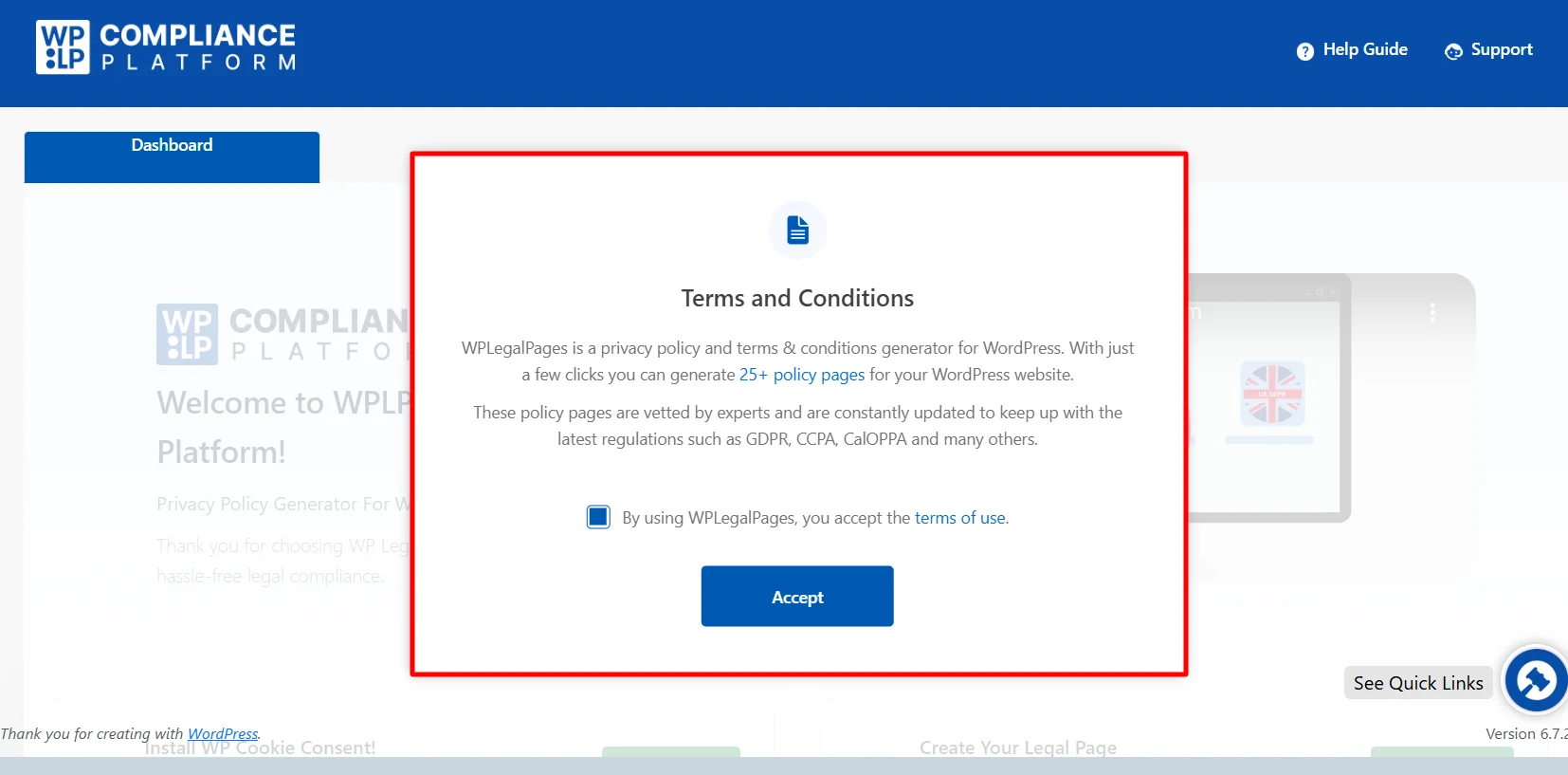
Step 3: Create an Account with WP Legal Pages Plugin
To generate legal pages for your website, scroll down from the dashboard and click Create Page.
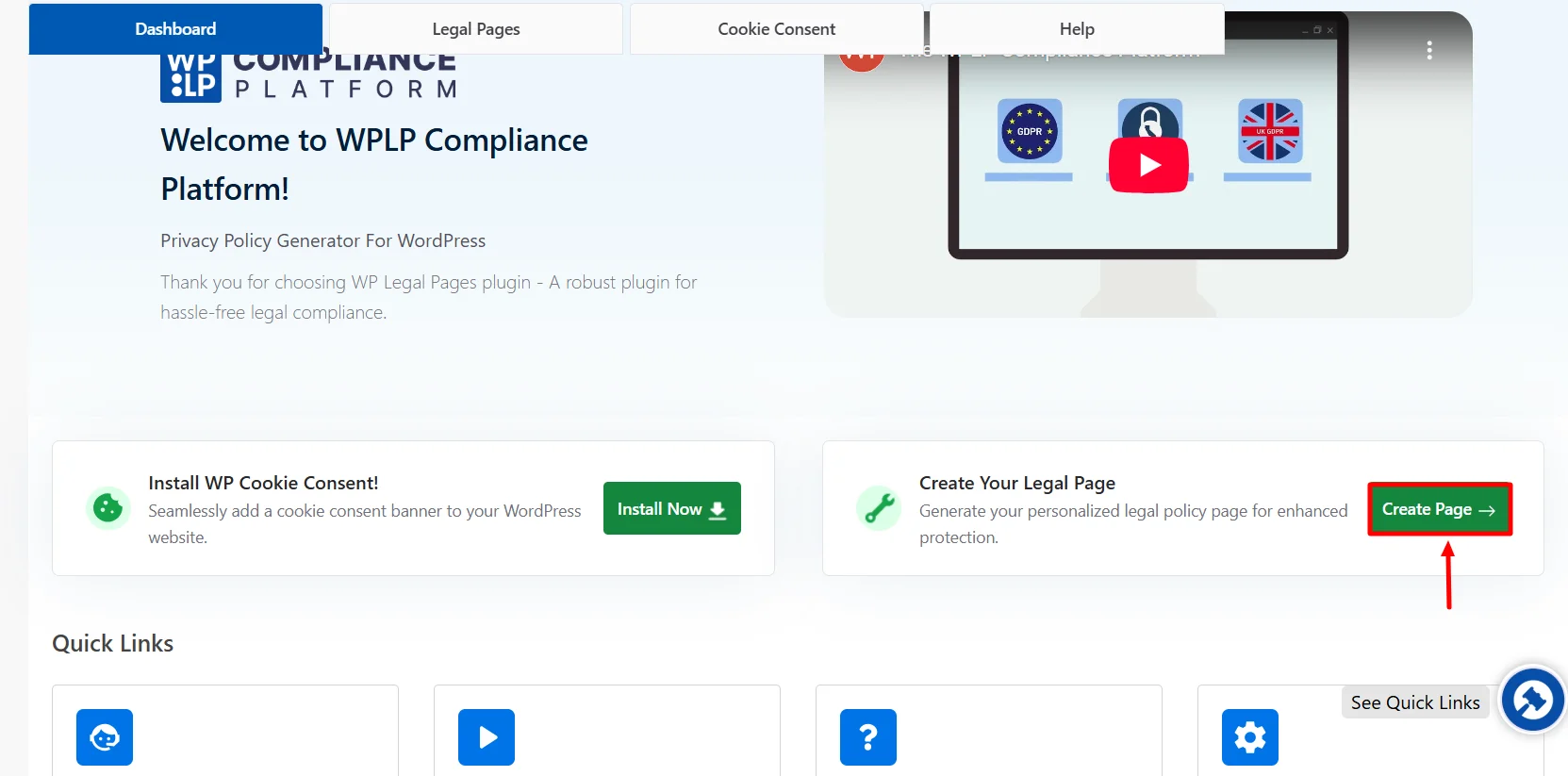
This will open the WPLegalPages wizard. From the WPLegalPages wizard, choose the Standard Privacy Policy template and click the Create button.
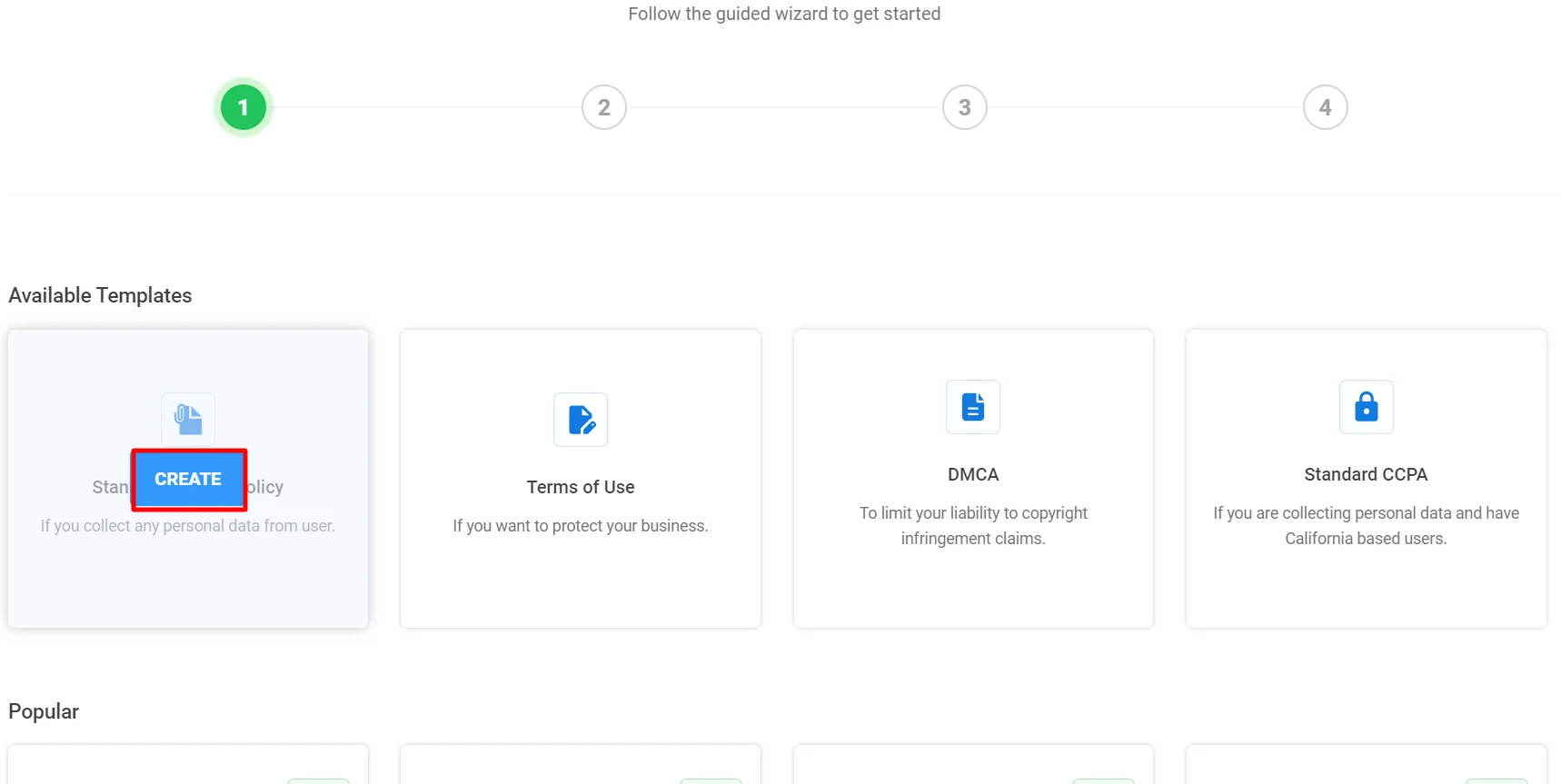
Once you click Create, a popup will appear, asking you to create a new account. Click on New? Create an account.
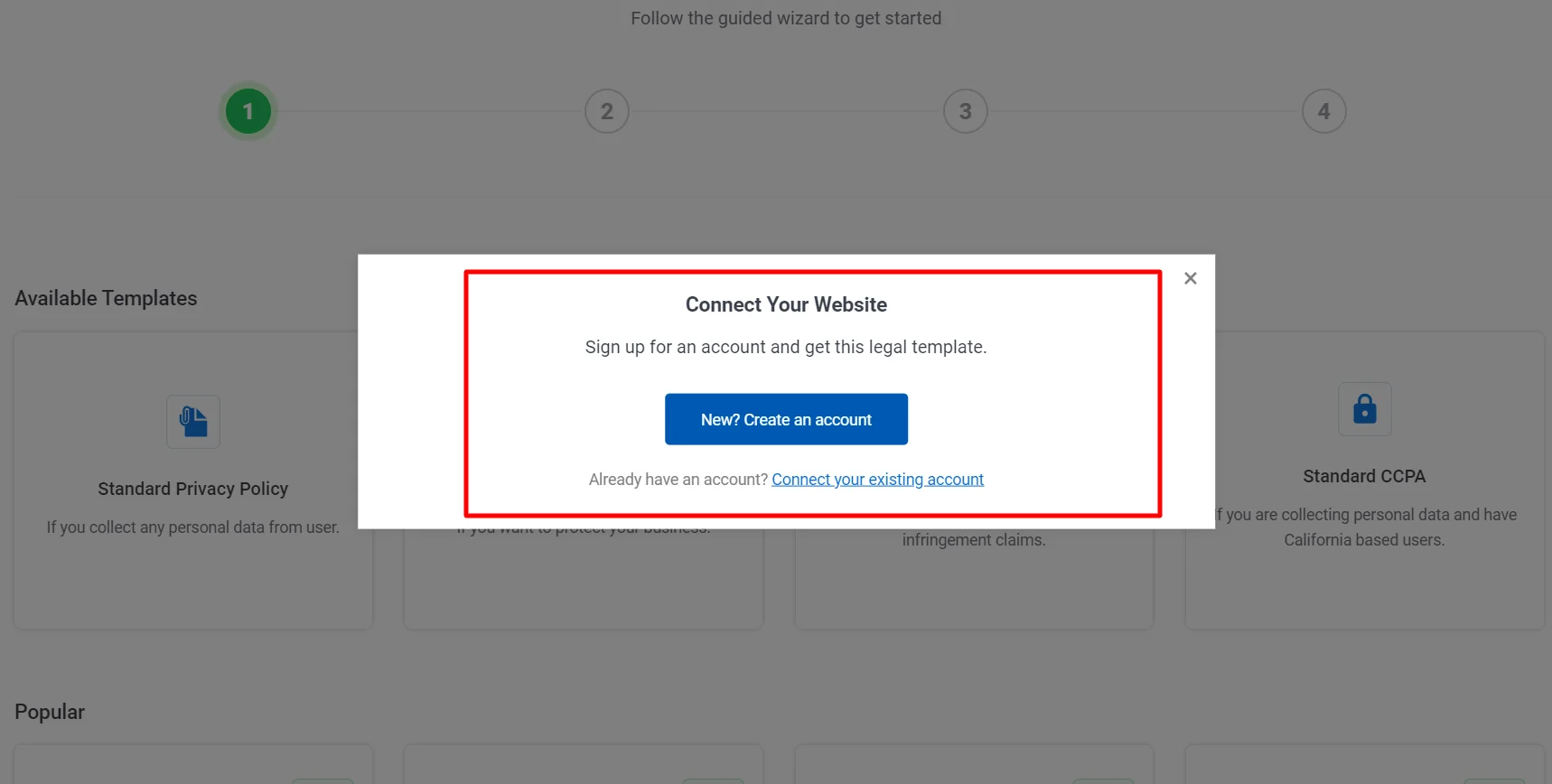
Once you Sign up, your account will automatically connect to your site, and you can start creating legal pages for your website.
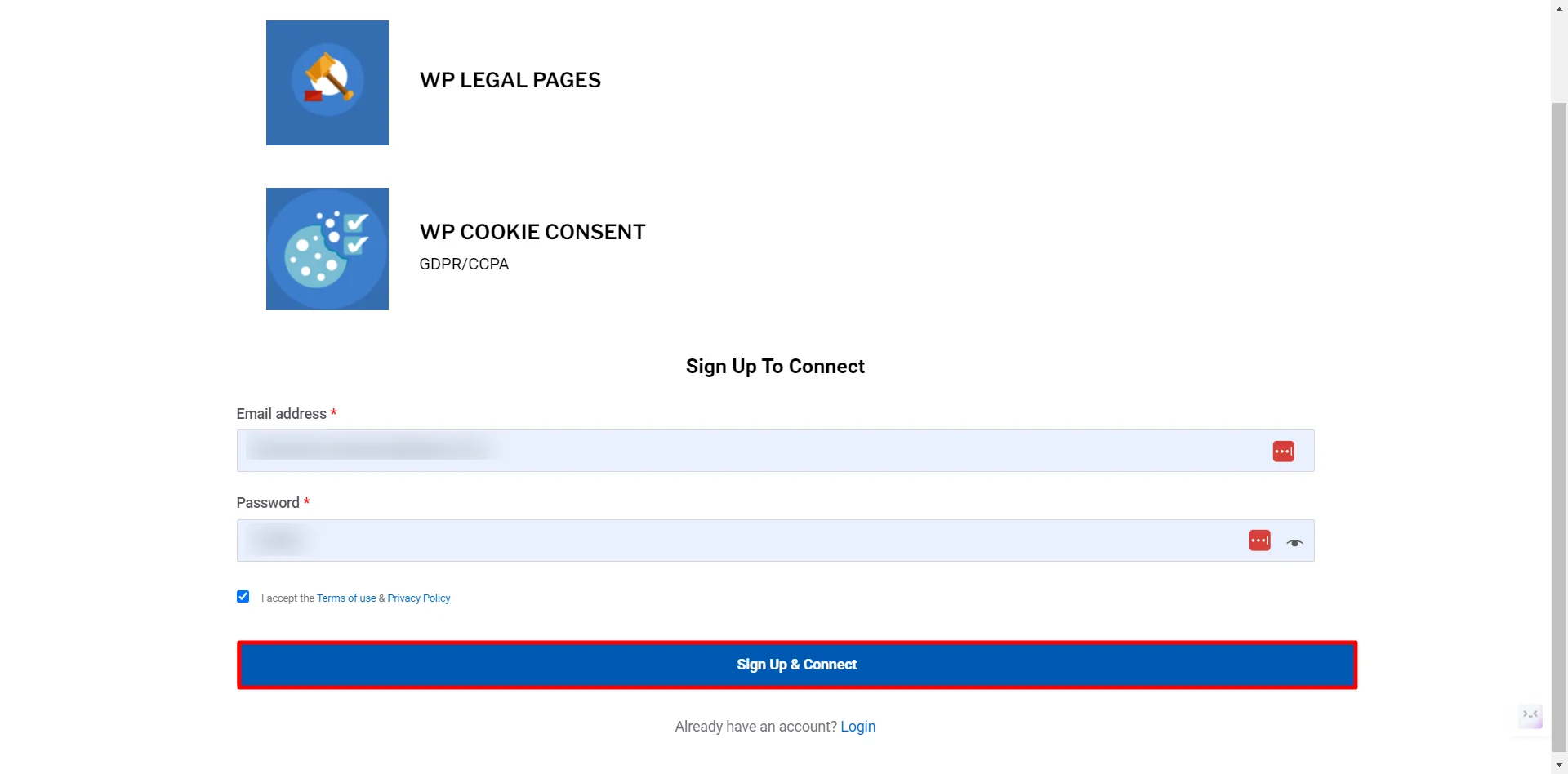
That’s it. You have created an account and can now start creating your website’s Legal Pages. Let’s see how we can create a privacy policy for educational websites.
Step 4: Making a Privacy Policy For Your Website
You will now see Four Templates available in the free version. Click on the Standard Privacy Policy option to create a Privacy policy for your educational website.
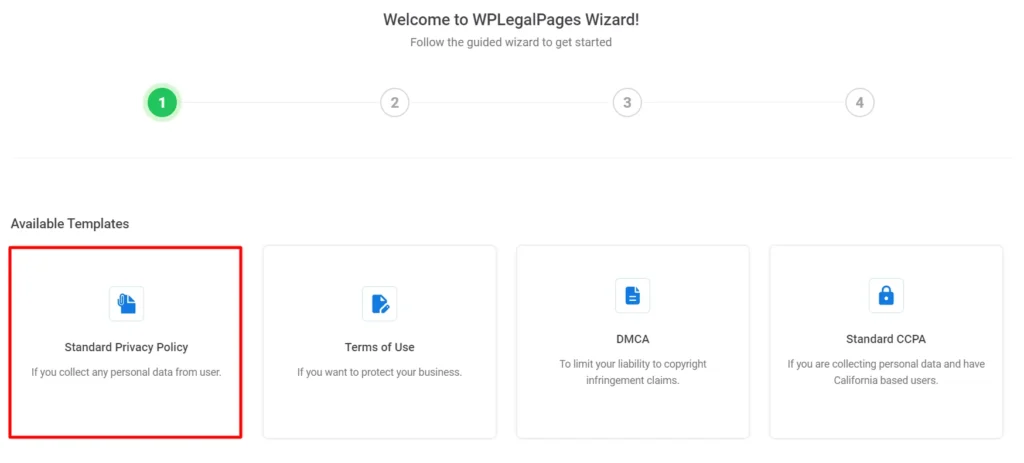
Fill in the Basic Details and click Next.
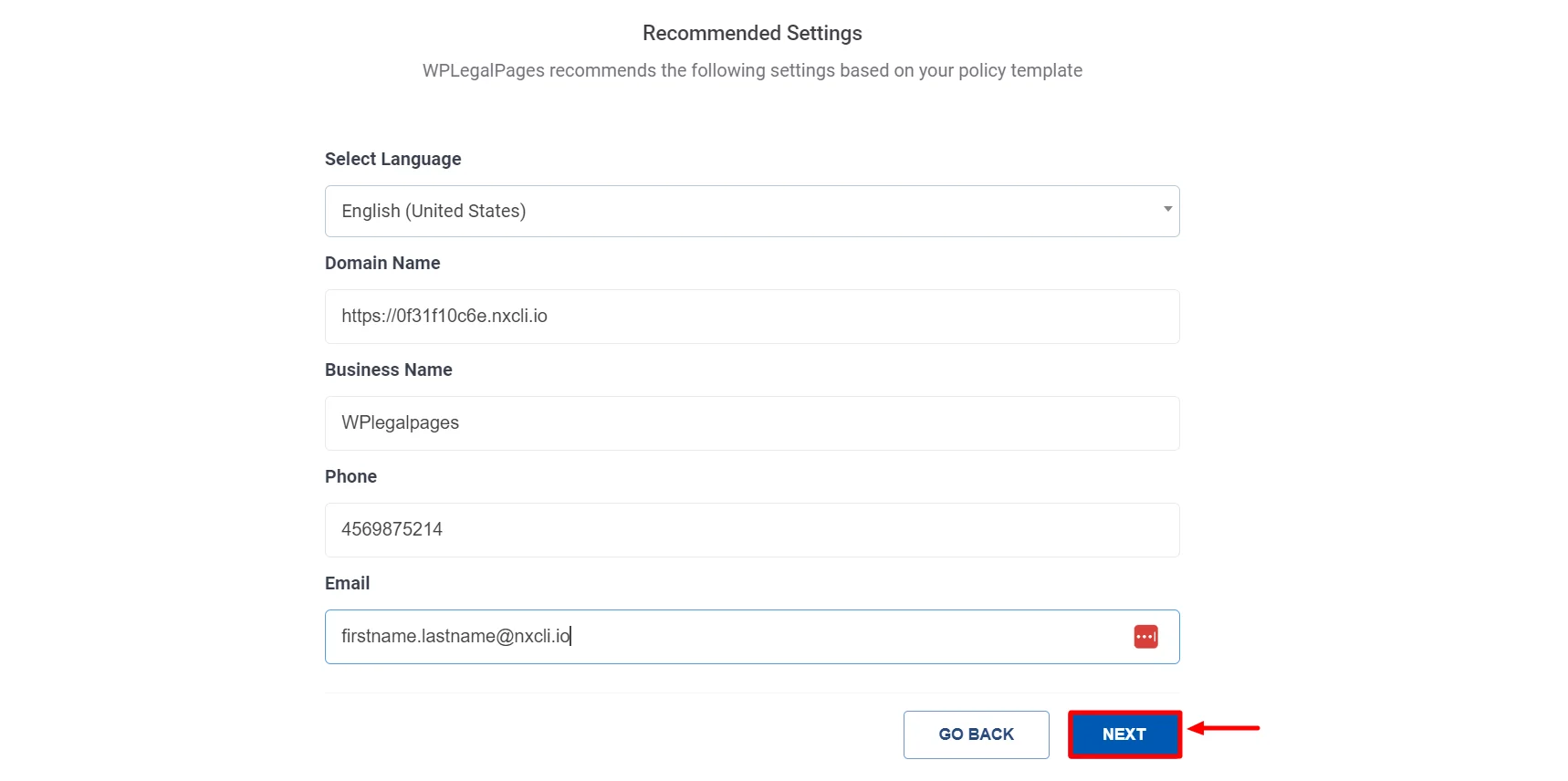
Select the appropriate section for your legal policy, then click Next.
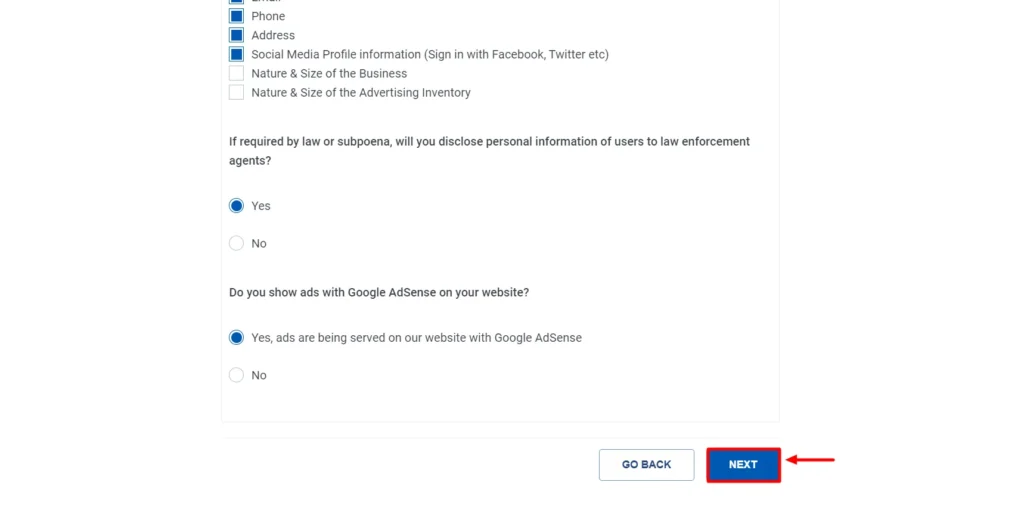
That’s it! Your Education privacy policy is ready.
Click the Create and Edit option to edit or add additional information to your privacy policy.
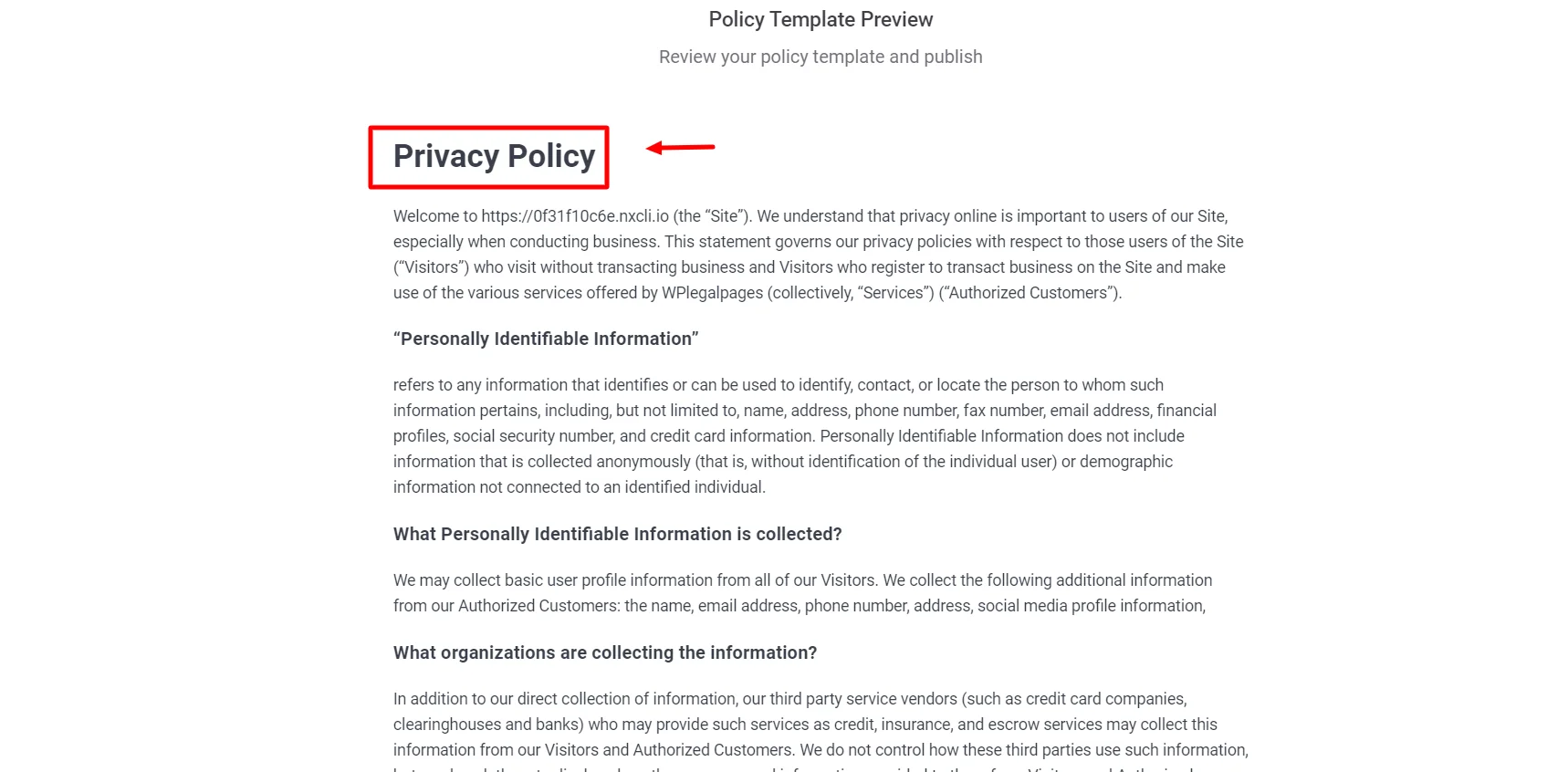
After you have made the necessary changes, click on Publish.
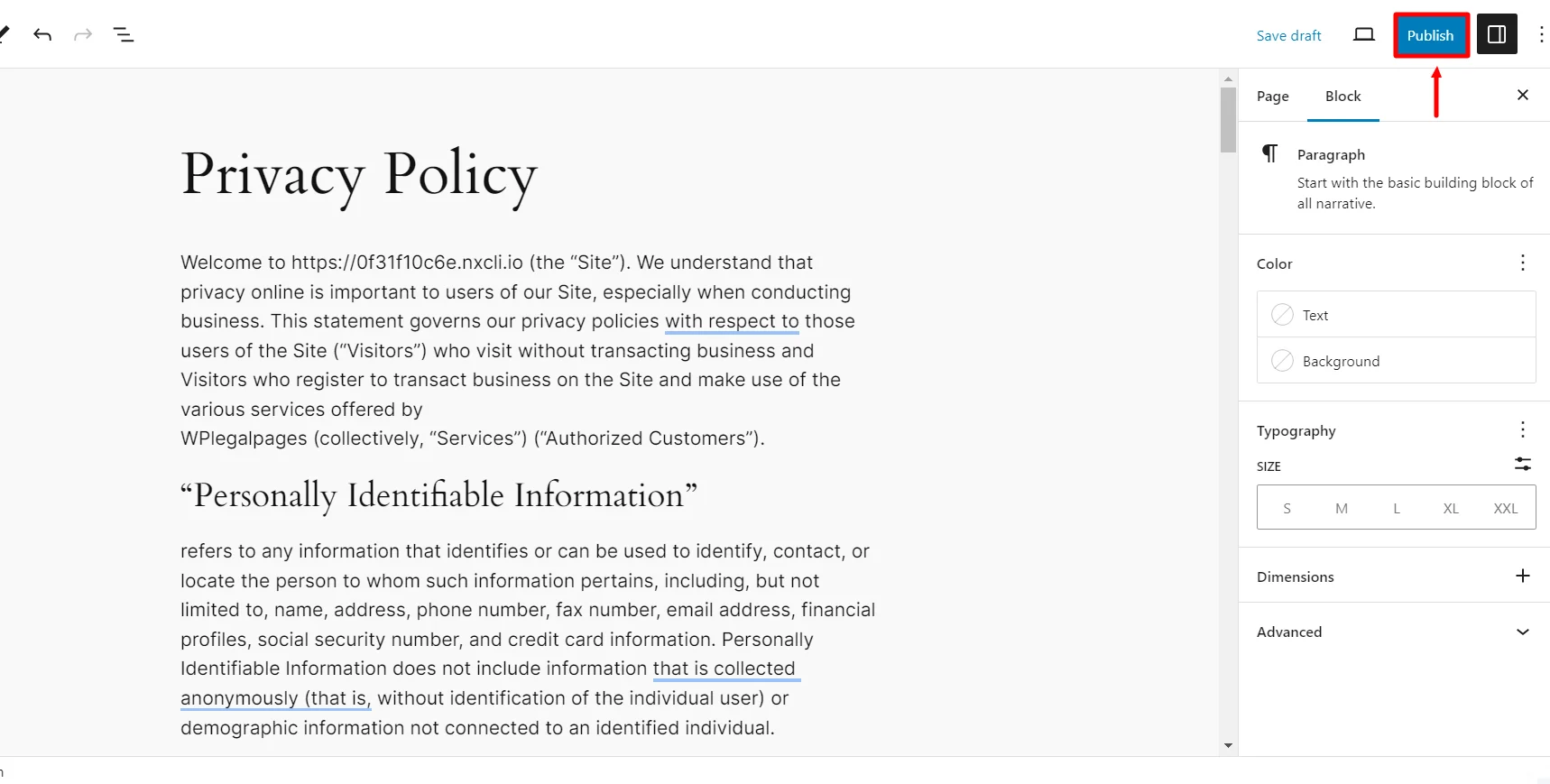
That’s all! Your Standard Privacy Policy is ready with just a few clicks.
Note: This is a basic privacy policy template covering essential clauses. For a more comprehensive policy with additional legal protections, consider using our Professional Privacy Policy Template in the Pro version of the plugin.
FAQ
Yes, you get a free template for your privacy policy using WP Legal Pages plugin.
A privacy policy for the internet is required in many areas and helps build user trust by clearly explaining how their data is managed.
You should review and update your privacy policy at least annually or whenever significant changes to your data practices or applicable laws exist.
Conclusion
An Internet Privacy Policy is important for building user trust and meeting legal requirements.
Organizations can promote transparency and responsibility by clearly explaining how personal data is collected, used, and protected.
Following best practices while writing this document ensures it meets legal standards and meets users’ expectations.
As privacy concerns increase worldwide, having a firm Internet Privacy Policy helps protect user data and boosts your organization’s reputation in a competitive market.
Regular updates and clear communication about user rights will further strengthen trust between businesses and their clients in today’s digital world.
If you like this article you might also like:
- Best Practices for Implementing a Cookie Consent Solution
- Step GDPR Compliance Checklist You Need To Follow
- Ultimate Guide to Make Your WordPress Website Cookie Compliant
Grab the WP Legal Pages Compliance Platform now!
